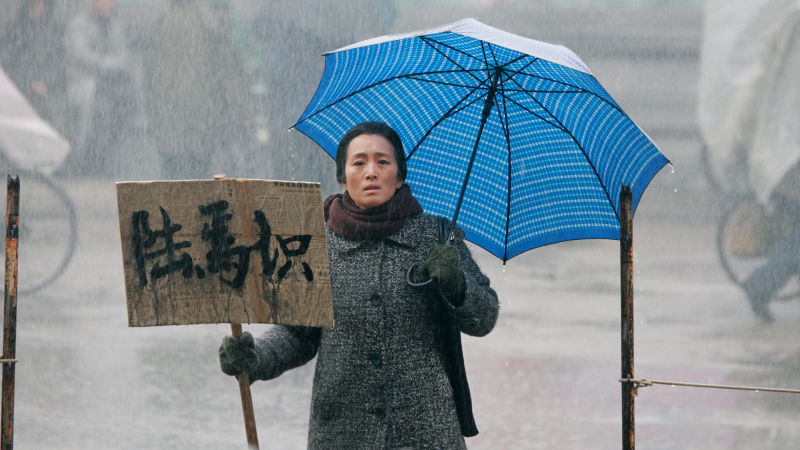China’s Cultural Revolution was a period of political turmoil, launched by Mao Zedong in 1966, a dark decade that many in Chinese society would prefer to forget. So it says something that Zhang Yimou’s new drama Coming Home, which is set during those years, has been a big success in China.
The film opens with a cold-war propaganda vignette — a military ballet, young Chinese girls dressed as soldiers pirouetting with prop guns. One of the dancers is the ambitious daughter of Lu Yanshi, a disgraced professor who, she will soon learn, has escaped from a “re-education” camp. Hoping to advance her ballet prospects, she informs on her parents — tells the police that her mother Feng Wanyu plans a secret rendezvous with Yanshi at the train station.
It is, however, a very crowded train station, where the only way a hidden Yanshi can find his wife is to come out into the open. Though certain he’ll be caught, he steps from the shadows, waves his arms and shouts his wife’s name.
Wanyu, standing high on a platform, sees him, and at that same moment, sees soldiers coming for him. So she screams at him to run — to run away. Instead, he runs toward his wife. And seeing that he’ll be caught, she runs toward him as soldiers close in on them both.


